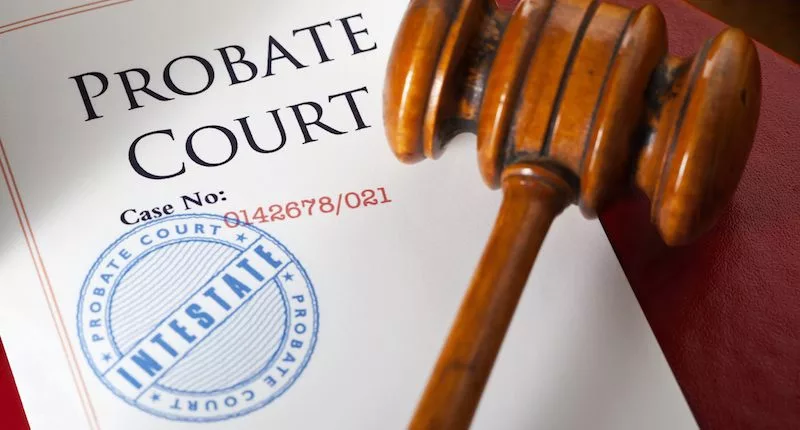How to Avoid Probate in California
How to avoid probate in California is fairly simple, yet it’s smart to think ahead and properly plan for the future. There are many options available and we’ve discussed them in detail.
Read further to find out which option is best for you.
Introduction
Many people cringe when they hear the word probate. Maybe they have had a bad experience with a probate case or maybe they have heard the stories. Either way, it is no secret that most people want their estate to stay out of probate court when they die.
Upon your death – or the death of a loved one – grief and emotions will be running high. The last thing anyone wants to think of is a public display of personal business and a long-lasting court case.
What does this mean for you? Well, if you want to offer a bit of solace in a time of death, plan now for the future. Learn how to avoid probate in California and put a plan in place to do just that.
The Probate Process
The lengthy probate case process all gets started by an executor of the will (assuming there is one) or a family member who becomes the administrator files a Petition for Probate (and additional forms if necessary) with the court.
After the commencement process, the executor must begin to gather all the decedent’s assets. An estate bank account is opened, a filing system is organized, inventory is taken, and appraisals of the asset happen. This is an overwhelming process with a lot of paperwork and a lot of required attention.
During this entire process (that can last around 6 to 12 months), the executor is to keep the assets safe, maintain property insurance, pay outstanding bills and taxes, and so forth. Creditors get a chance to submit claims for payment which, if deemed valid, are then paid out of the estate assets.
Once all loose ends are tied up, the executor requests that the court close the estate. It is only after this is done that the executor can distribute the remaining assets of the estate to those who are set to inherit them.
It is important to keep in mind that, in addition to the time spent on this process, the cost can be high. There are filing fees and attorney fees you will encounter that could reduce the total value of the estate when all is said and done.
When is Probate Necessary?
Every situation is unique, but the three most common reasons your estate may be required to go through probate is if:
- The value of the estate exceeds $166,250.00 and there is no will in place. The probate process will have to determine beneficiaries as well as the assets they will receive.
- The value of the estate exceeds $166,250.00 and there is a will in place. The probate process will validate the will and distribute the assets according to its terms.
- A will is drawn up but contains mistakes. The probate process will allow the court to review the will, address the mistakes, and even determine if it was fraudulently executed.
Here’s How to Avoid It
The good news of the day is that now you know when probate is necessary – which means you also know that there are steps you can take to avoid it, right? We have a few ways that can help you avoid probate altogether. You just have to decide which one is right for you.
- Create a Living Trust
Living trusts are a common part of estate planning. Things such as bank accounts, your property, automobiles, and artwork can all be included in this trust – and will allow your estate to stay out of probate. A living trust (or a revocable living trust) allows for the private administration of the assets with no court fees and no extended distribution schedule.
Please note that for a living trust to be effective in keeping your estate out of probate, you must make sure that each asset is owned in the name of the trust – not you.
- Designation of Beneficiary
California’s NonProbate Transfer Rules is a statute that allows transfers of things such as life insurance policies and retirement accounts to a designated beneficiary. Upon death, these items are transferred to the one who is listed as the beneficiary. No probate is necessary.
- Joint Ownership with Right of Survivorship
In California, joint ownership of property is not just assumed – it must be in writing. And it must include the words right of survivorship – which means that the surviving owner takes over ownership when the other one dies. This is another way to avoid probate.
There are two types of Joint Ownership here: Joint tenancy and Community Property with the Right of Survivorship.
Property held in joint tenancy automatically transfers to the surviving owner after the death of the second party. This is a common way to hold property in California and both parties own an equal share. Community property with the right of survivorship assumes both parties own all of everything. Upon death, all of this property is transferred to the survivor.
Probate is not necessary.
- Operation of Law
The California Multi-Party Account Laws are an established set of rules that determine who owns funds in a bank account. Following the terms of the contract with the bank, once the death certificate is presented, the money will be passed on to the survivor. Probate is not necessary.
- Small Estates Law
In California, the probate code states that estates of $100,000.00 or less do not need to be probated. This can be used for estates that exceed this amount, too, since the $100,000.00 is only applied to probate assets. Things such as life insurance, IRAs, 401Ks, assets in a living trust, or assets with joint tenancy are not probate assets. Therefore, only estates with a value of less than $100,000.00 worth of probate assets will have to be probated. Otherwise – no probate is necessary.
Seek Advice
Many laws are surrounding the probate process. Whether you are working on your estate planning now – or are a grieving spouse trying to determine how to avoid probate – getting a legal opinion can help. Going through probate can be an expensive and exhausting exhibition of one’s assets. Get the help you need to keep these matters private and tied up quickly.
Are you in search for a certified attorney to represent you?
Let us help you find one today!


